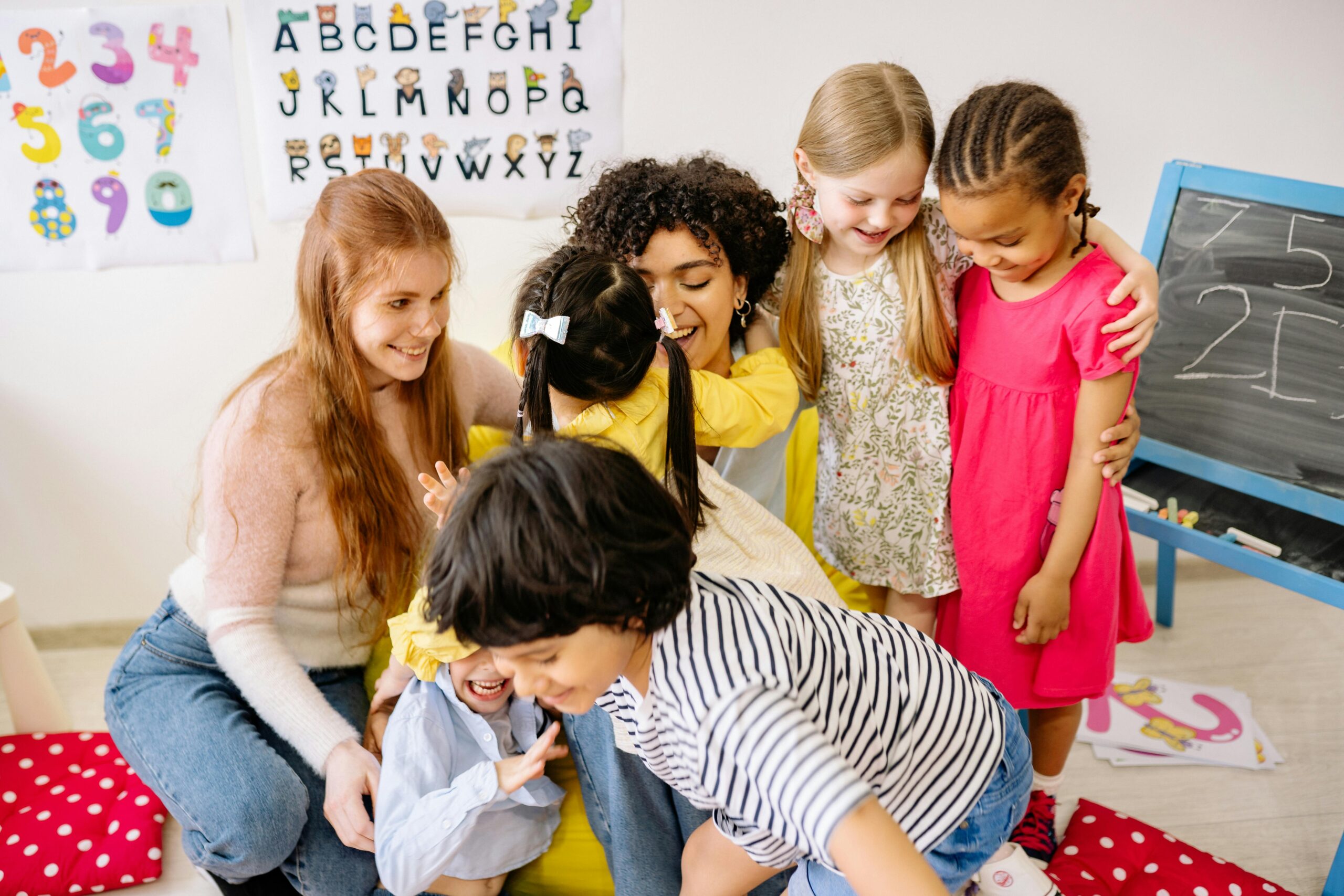At Primrose British Nursery, we believe in nurturing young minds with encouragement, compassion, and respect, cultivating an environment where positive behavior blossoms. For children, feeling valued and recognised for their achievements helps instil a strong sense of self-worth, kindness, and responsibility—all foundational traits for a happy, well-rounded individual. In the multicultural community of the United Arab Emirates, where families come from diverse backgrounds and traditions, positive reinforcement provides a universal language of care that resonates with children and parents alike.
In this post, we’ll explore what positive reinforcement means, why it’s effective, and how parents can use it to support healthy behaviour at home.
What is Positive Reinforcement?
Positive reinforcement is a simple yet powerful strategy that focuses on encouraging desired behavior by rewarding it. Instead of highlighting mistakes or using punitive measures, positive reinforcement acknowledges and celebrates good actions, choices, and efforts. This approach teaches children that their actions matter and encourages them to repeat behaviors that bring positive recognition.
Examples of positive reinforcement can range from verbal praise to small rewards, such as:
- Verbal Acknowledgment: Saying, “Well done!” or “I’m so proud of how you shared with your friend today!”
- Non-Verbal Cues: Giving a warm smile, a high-five, or a hug to show appreciation.
- Tangible Rewards: Using small rewards like stickers or a special story time to mark achievements.
At Primrose British Nursery, we use positive reinforcement every day, ensuring that children feel encouraged and supported as they learn and grow. By recognizing their efforts, we create a nurturing space where children feel safe to try new things and express themselves freely.
Why Positive Reinforcement Works
Positive reinforcement not only boosts children’s confidence but also supports their development in key areas:
- Builds Self-Esteem: When children receive praise for their achievements, they develop a positive self-image and feel proud of their efforts.
- Encourages Repetition of Positive Behaviors: Children are more likely to repeat behaviors that gain positive reactions. For example, acknowledging a child for being polite or helping a friend reinforces those behaviors.
- Strengthens Parent-Child Bond: Positive reinforcement fosters a trusting relationship, as children feel understood and appreciated rather than criticised.
- Reduces Negative Behavior: By focusing on positive actions, children learn what is expected and feel motivated to avoid behaviors that might lead to disappointment.
In a diverse environment like Primrose British Nursery, positive reinforcement is especially effective. Children come from various cultural backgrounds, and this approach respects each child’s unique experiences while helping them thrive within our inclusive community.
Applying Positive Reinforcement at Home
Incorporating positive reinforcement into daily life at home is both easy and rewarding. Here are some ways to get started:
1. Set Clear and Simple Expectations
Children benefit from understanding what’s expected of them. For example, you could say, “It’s time to put our toys away,” and praise them for helping. At Primrose, we use clear instructions combined with positive feedback to guide children in routines and social skills.
2. Acknowledge Effort, Not Just Results
Encouraging children for trying their best is just as important as celebrating their achievements. For example, if your child attempts to tie their shoes, say, “You’re doing a great job learning to tie your shoes!” This helps children understand that effort is valuable, building perseverance.
3. Use Cultural and Personalized Rewards
In the UAE’s multicultural context, rewards that resonate with each family’s values and culture are meaningful. For instance, some families might choose special time spent with elders, a shared story, or a small treat as rewards. At Primrose, we respect cultural diversity and tailor our approach to ensure every child feels seen and appreciated.
4. Celebrate Small Wins
Small acts like following instructions or showing kindness should be celebrated, even with a simple “Thank you for being so helpful.” Over time, these small moments build a foundation of positive behaviors that children will carry into other areas of their lives.
5. Be Consistent
Consistency is key. Make a habit of using positive reinforcement in similar situations, which helps children understand what’s expected and builds security and trust. Just as at Primrose, where children follow a predictable schedule, consistent reinforcement helps them feel more confident and settled.
Positive Reinforcement in a Nursery Environment
At Primrose British Nursery, our teachers understand that each child is unique and that celebrating individuality fosters a supportive learning environment. Positive reinforcement here is aligned with the Early Years Foundation Stage (EYFS) framework, where the focus is on nurturing each child’s potential. For instance:
- During group activities, we praise children for participating and sharing with others.
- When a child takes their first steps in learning a new skill, like counting or saying “thank you” in Arabic, we acknowledge their progress with a smile or a thumbs-up.
- Small group rewards, like stickers or a “helper of the day” badge, encourage a sense of belonging and motivate children to work together harmoniously.
Through positive reinforcement, we’re able to nurture a sense of belonging, pride, and cooperation that is shared by all our children, regardless of their backgrounds.
Building Positive Patterns That Last
Positive reinforcement isn’t just about building healthy behavior today—it lays the groundwork for a lifetime of self-motivation and resilience. In a supportive, multicultural community like Primrose British Nursery, this approach aligns with UAE values of respect, empathy, and cooperation. As children grow, these early experiences shape them into individuals who value kindness, patience, and responsibility.
Final Thoughts
Whether in the classroom or at home, positive reinforcement helps children feel valued and teaches them the importance of good behavior. By focusing on the positive, parents and teachers can guide children in a way that fosters happiness, confidence, and respect for themselves and others.
At Primrose British Nursery, we’re dedicated to making every child feel special and empowered, celebrating their milestones, big or small. Together, we can help children thrive and blossom, shaping the next generation with love and encouragement.
If you found these tips helpful, be sure to follow our blog for more insights on child development, early learning, and tips for supporting your child’s growth.


Comments are closed